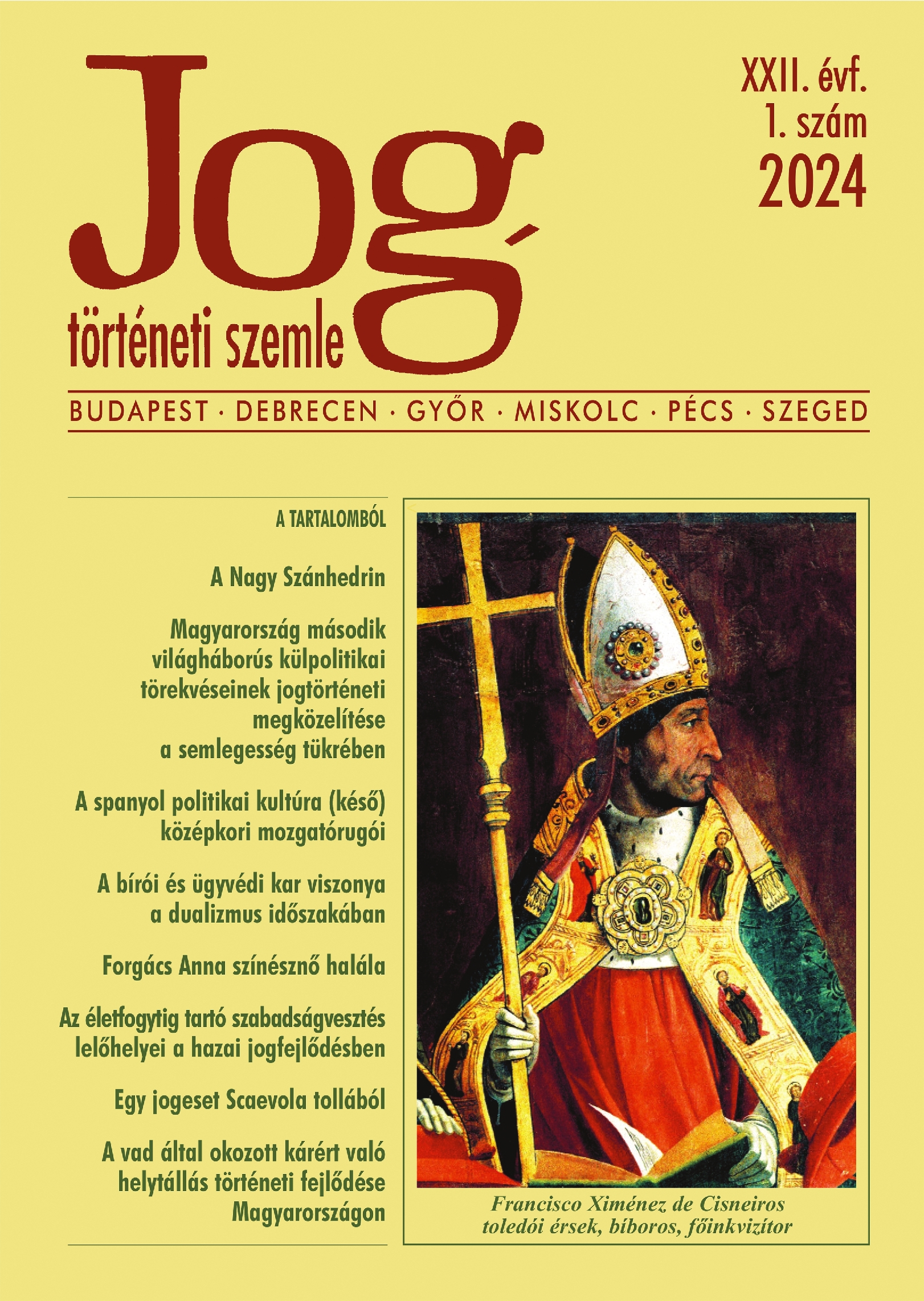Recuperata fuit Hispania
The two columns of the (late) Medieval Spanish political culture
DOI:
https://doi.org/10.55051/JTSZ2024-1p18Abstract
The two columns of the (late) Medieval Spanish political culture were the liberation of the Iberian Peninsula, the expulsion of the Moors (geostrategy) and the creation and preservation of the (Catholic) religious unity (Messianistic imperialism). The Spanish national identity was formed in the battles of the Reconquista, in which the Catholic faith proved to be the most important link during the struggle against the Islam. During the Reconquista, the Spanish monarchs understood that the political and religious unity were essential for the survival, and even more so for the success of the struggle against the Moors, the fulfillment of the Reconquista. To reach the political unity and its preservation became the innermost essence of the Spanish political culture in the (late) Middle Ages, which was inherited from the experience of the long struggles with the Moors.






